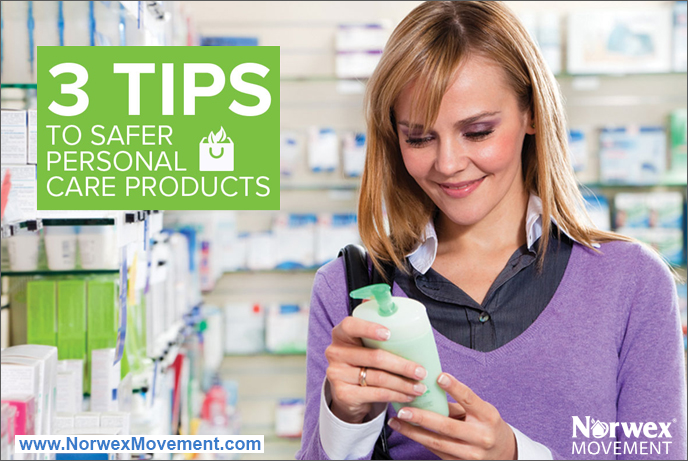

Reports show that the cosmetics industry currently earns more than $60 billion annually in the U.S., making it one of the most profitable sectors in business. But as online shopping expands its reach into the beauty market, we now have access to countless products that may contain harmful chemicals.
Check out the tips below to help keep you and your family safe from exposure to the harmful chemicals found in many cosmetics products.
1Use Fewer Products
According to the Environmental Working Group, the average woman uses 12 personal care products every day. Chances are, if you’re purchasing cosmetics, you’re going to encounter several products that contain a long list of potentially dangerous chemicals. However, if you purchase and use fewer products, you and your family can avoid unnecessary exposure to harmful chemicals such as PEG compounds (a human carcinogen) and parabens (known endocrine disruptors).
2Skip the Fragrance
We all love pleasantly scented beauty products, but the ingredient “fragrance” found in so many cosmetics often contains an unknown number of potentially harmful chemicals. Fragrance can be composed of thousands of these chemicals that could trigger allergies or asthma—and may even be carcinogenic. If possible, look for products that display their fragrance ingredients in full, as even some “naturally scented” or “fragrance-free” products may contain masking agents to hide the scent of certain chemicals.
3Choose “Natural” and “Organic” Products Carefully
When it comes to products labeled “natural” or “organic,” it’s important to read labels and look for products that are certified by reputable agencies, such as EcoGruppo, NATRUE, Ecocert® and BDIH. Why? Because these agencies have strict rules about what goes into the products they certify.
This is because the cosmetics industry has few regulations for the chemicals contained within beauty products.
For example, on some beauty products, the term “natural” could indicate that the product contains only a few natural ingredients, while the rest is composed of harmful chemicals. And beauty products marketed as “organic” usually means that the product must contain a minimum amount of only 70% organic ingredients—meaning the remaining 30% could be filled with harmful ingredients!
“Natural” may not always be so natural when it refers to the beauty products you purchase, so it’s important to become more aware of the chemicals in your cosmetics. Increased awareness will help you make smarter choices to keep you and your family healthy and safe from harmful chemicals.
Resources:
Statista: Revenue of the cosmetic industry in the United States from 2002 to 2016 (in billion U.S. dollars)
EWG: Exposures add up – Survey results
Breast Cancer Fund: Choose Safe Cosmetics
Huffpost Blog: The Danger of Toxic Consumer Products, Fragrances
Campaign for Safer Cosmetics: Top 5 Safe Cosmetics Tips
USDA Organic Skin Care
EWG Skin Deep: Top tips for safer products
NATRUE’s Mission
Certified Natural Cosmetics: Transparency for the Consumer
Ecocert Group: Natural and organic cosmetics
Another great article. I also try to buy products that are sustainably resourced and environmentally friendly. We need to do our research. When we start changing our buying practices and asking the important questions of companies they’ll realize we don’t want those toxic chemicals in our lives.
I love EcoCert certified Veriditas Botanical Essential Oils. Pure and source transparent.
I don’t wear cosmetics often, but after checking my products on EWG, it may be time for a change. Fortunately my favorite scent is lilac oil and this has been my ONLY fragrance for 20+ years! I get lots of compliments on my “perfume,” lol!
I’ve been missing wearing perfume and have thought about using a pure essential oil instead. Do you just dab it on as is, or do you dilute it Leah?
I also use EWG and Skin Deep as resources for making product decisions. Thank you for continuing to remind people how important it is to understand what is in their skin and body care products!
Jen, thanks for your comment—those are great resources. And you’re right: since some chemicals can be easily absorbed through our skin, it’s especially important to be aware of the ingredients contained in personal care products.
For those of you who haven’t heard of LUSH handmade cosmetics, it is a life saver. Not only are all of their products vegetarian, most of them are vegan and not tested on animals. Most of their products are self preserving, which means there are no synthetic preservatives. They use “naked” packaging to reduce packaging waste. Like Norwex, LUSH is a great company that I think most people would enjoy learning about to help the environment and overall well-being.
It is amazing how many chemicals are in cosmetics. I would love to see more natural cosmetics.
I never wear perfume and rarely cosmetics. I should look at the ones I do own and see what ingredients there are.
Its amazing. How many chemicals in skin care products? Is it hazardous health for skin care?
I pretty much rely on the EWG cosmetics database to find safe products for my skin these days.. their grading system in VERY helpful and a wonderful resource!
Thank you for your tip to skip the fragrance when buying beauty products. My wife and I want to choose healthier, organic personal care products now. I’ll be sure to look for products that are fragrance-free.
This is helpful advice for choosing safer personal care products. Thanks for sharing.